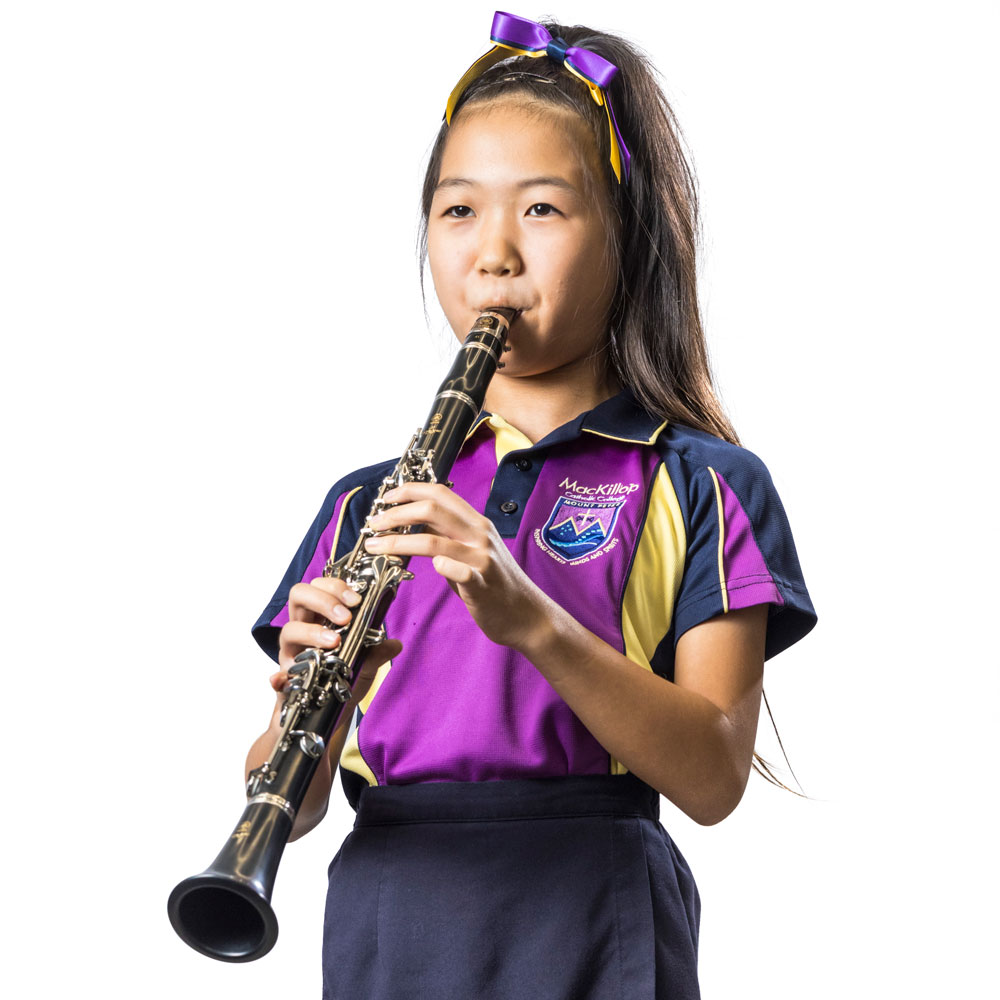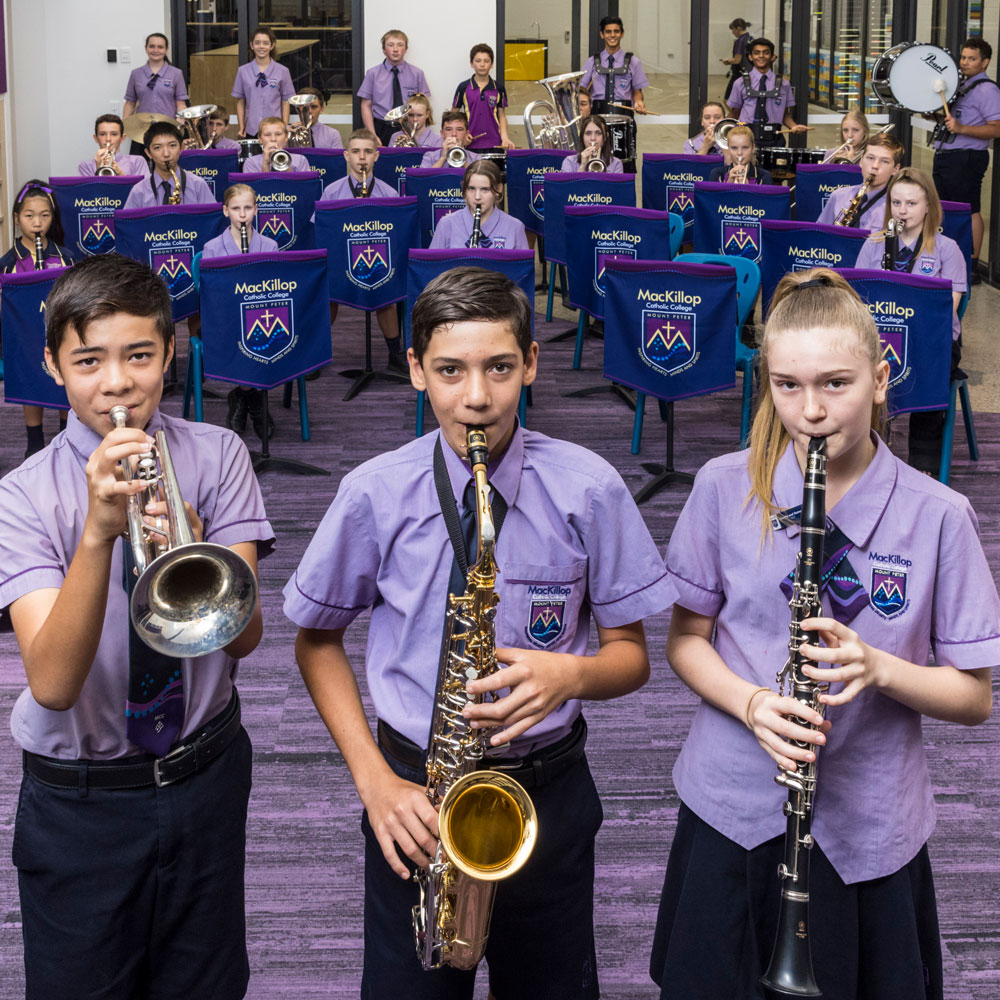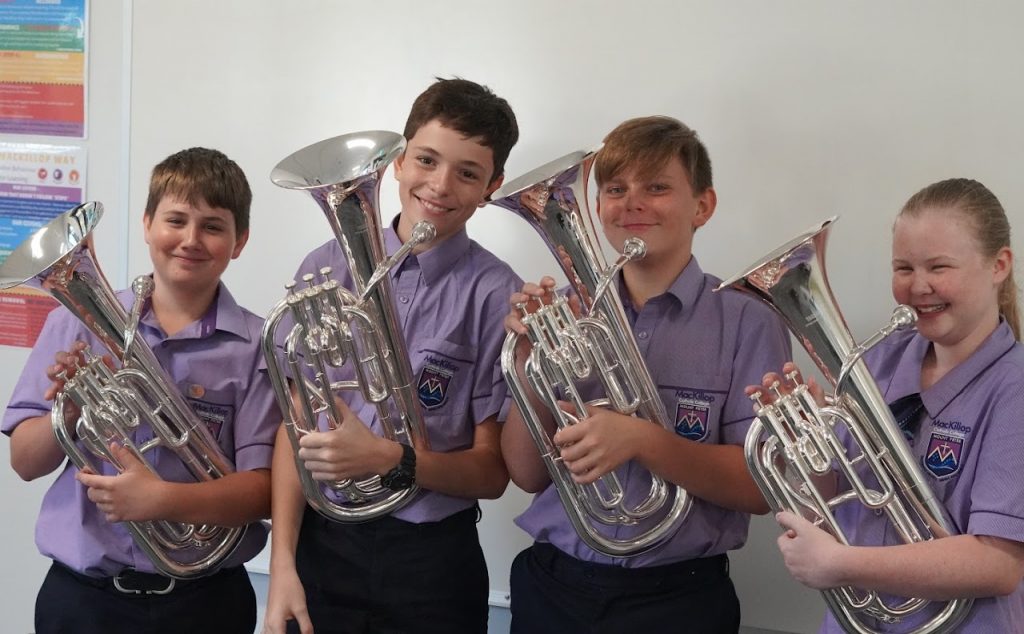Head of Performing Arts – Mrs Sarah-Jane Rennie
Sarah-Jane joined the MacKillop Catholic College community at the beginning of 2025, bringing with her a deep passion for the Performing Arts and a wealth of experience in both performance and education. As a classically trained vocalist, she has performed in a range of operatic and theatrical productions, with standout roles including Suor Angelica and Rosalinda in Die Fledermaus.
Sarah-Jane holds a Bachelor of Arts, a Bachelor of Music Performance (Voice), a Diploma in Opera, and a Postgraduate Diploma of Education (Secondary). Her strong academic foundation is matched by her commitment to inspiring the next generation of performers. She is passionate about fostering creativity, confidence, and discipline in her students, and she brings energy and expertise to every rehearsal, lesson, and performance opportunity.
Sarah Jane is an accomplished performer whose career has taken her across the globe. She toured internationally with Andrew Lloyd Webber’s production company, performing in The Phantom of the Opera as Charlotte, and has held prestigious roles as both an Emerging and Resident Artist with New Zealand Opera.
In addition to her extensive work as a freelance singer, Sarah Jane is a versatile musician, she plays piano, guitar, and violin, adding further depth to her rich musical background.
Welcome to the Performing Arts at MacKillop!
Congratulations! Your child has expressed interest in joining the Performing Arts at MacKillop Catholic College. We’re excited to have them explore their creativity and develop their talents in a vibrant and supportive environment.
This page outlines the key areas of involvement and what you and your child can expect from being part of the Performing Arts community at MacKillop.
Two Main Areas of Participation:
🎵 Music Lessons
Students have the opportunity to participate in weekly group lessons across a range of instruments including brass, woodwind, percussion, strings, piano, and voice.
- To be eligible, students should demonstrate a level of musical aptitude. More importantly, they need to show the commitment, work ethic, and positive attitude essential for long-term success on their chosen instrument.
🎭 Performing Arts Groups
Students can join a variety of performance groups such as college bands, choirs, dance troupes, and cheerleading squads.
- Participation goes beyond learning notes or choreography. Through the Performing Arts, students build discipline, confidence, teamwork, and a deeper appreciation of the rich traditions of music and dance. Research shows that involvement in the Arts is closely linked to academic growth—so joining a group is a great way to enhance overall learning and development.
Music lessons

Click here for all information about instrumental, vocal and piano lessons
Performing Arts Groups

Click here for Performing Arts bands, choirs, dance, and cheerleading
Why get involved in the Performing Arts?
Trust:
The Performing Arts is all about trust! Students learn the responsibility of trust, what it means to lose it and what it takes to win it back. For instance in cheerleading, the flyers have to trust their bases to keep them in the air and to catch them when they fall. The bases have to trust that their flyers stay tight and light in the air and execute their skills with precision. And they all have to trust their head spot to lead the stunt group and literally have their backs when something goes wrong. If there is no trust in each other the stunts DO NOT work!
Time Management:
Performing Arts, like any other sport, is a major time commitment. Students have to learn how to juggle not only their ensemble or group but also school, family commitments, friends and all the other things life throws at them. The difference between the Performing Arts and other team sports is that every single member plays a vital role to the success or failure of the team. If students don’t learn good time management skills, it can affect not only their team mates but also their experience.
Mental strength:
Being in the Performing Arts is 80% mental and 20% physical. Performers need to be able to play, recite, sing, dance, tumble, jump and stunt multiple times in minutes and its tough! Students need to have a great attitude and work ethic to get through the year. It is the difference between “Oh my god! Why do we have to do it again” to “Let’s do it again till we get it right!”. Mental strength is not only important for performing artists but for life in general because it teaches students how to get back up after they fall.
Selflessness:
In this “me, me, me” world, being involved in Performing Arts teaches students to take a step back and make decisions that benefit the team as a whole, not just themselves. A cheer flyer who has grown a foot over the holidays is now one of the tallest members in the squad and has to move to be a base or head spot. A percussionist in band who is struggling to get a drill right has to swap with another band member to ensure the part is played correctly. A choir section who still can’t sing a sequence in tune a week before concert forces the whole choir to be watered down to make sure the piece is performable. These changes can be hard to swallow at times but they teach kids the important life lesson that it is about what will benefit the entire team and that ego when it is detrimental helps no one!
Friendship:
Performing Artists spend so much time together between rehearsing, competing, fundraising and performing that they can’t help but become friends. Add to this the trust that is needed to execute all the skills that are needed for performing and lifelong friendships are built. Performing Artists end up being more like brothers and sister than friends. With all the fights and disagreements that any siblings have but also with the love and fierce protection that comes with it.
Teamwork:
As a performer, students share blood, sweat and tears. Being in the Performing Arts teaches kids to work as one focused unit. It helps them learn how to handle the inevitable disappointments. If one person fails the whole team fails but if one person succeeds the whole team succeeds. It takes the hard work and mateship that is synonymous with footy teams and replaces the dirt and mud with instruments, hairspray and bows. Performers work just as hard as a footy team and they look good while they are doing it!
A Strong Work Ethic:
Building a great work ethic is such an important skill that all students need to learn. The Performing Arts teaches students to approach all things in life with a positive attitude and a determination to do everything to the best of their ability no matter what the situation. Commitment to the task at hand is what it takes to be not only a great performer but a future productive member of the community.
Presentation:
Being well groomed and presentable is important not only for performance but also in everyday situations. It is not about vanity but taking pride in your appearance. Students are taught to be proud of their uniform, their colours and their teams. If these skills can be learned when students are young they can help them not only in future job interviews but also when they enter into the work force.
Communication Skills:
Being able to communicate effectively with others is a major component of being in the Performing Arts. All ensemble and groups members need to be able to talk to each other to execute their performance. While skills are taught to all groups with the same technique not every group is the same. Some kids are tall, some kids are short and only through talking effectively to one another can progress be made. Being involved in the Performing Arts teaches students these important skills.
The Importance of Being Active:
Anything that gets kids active in a positive, fun environment can only benefit everyone involved!





